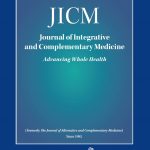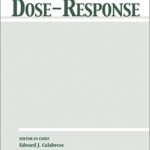Anisur Rahman Khuda-Bukhsh, Arnab De, Durba Das, Suman Dutta, Naoual Boujedaini
Analysis of the capability of ultra-highly diluted glucose to increase glucose uptake in arsenite-stressed bacteria Escherichia coli
J Chin Int Med, 2011, 9 (8), 901-912

Objective: Whether ultra-highly diluted homeopathic remedies can affect living systems is questionable. Therefore, this study sees value in the analysis of whether homeopathically diluted glucose 30C has any effect on Escherichia coli exposed to arsenite stress.Methods: E. coli were cultured to their log phase in standard Luria-Bertani medium and then treated with either 1 mmol/L or 2 mmol/L sodium arsenite, with or without supplementation of either 1% or 3% glucose, an ultra-highly diluted and agitated ethanolic solution (70%) of glucose (diluted 1060 times), glucose 30C or 70% ethanol (placebo) in the medium. Glucose uptake, specific activities of hexokinase and glucokinase, membrane potential, intracellular adenosine triphosphate (ATP) and expression of glucose permease in E. coli were analyzed at two different time intervals. Arsenic content in E. coli (intracellular) and in the spent medium (extracellular) was also determined.Results: In arsenite-exposed E. coli, the glucose uptake increased along with decreases in the specific activities of hexokinase and glucokinase, intracellular ATP and membrane potential and an increase in the gene expression level of glucose permease. Glucose uptake increased further by addition of 1%, 3% or ultra-highly diluted glucose in the medium, but not by the placebo.Conclusion: The results demonstrated the efficacy of the ultra-highly diluted and agitated glucose in mimicking the action of actual glucose supplementation and its ability to modulate expressions of hexokinase and glucokinase enzymes and glucose permease genes, thereby validating the efficacy of ultra-high dilutions used in homeopathy.







